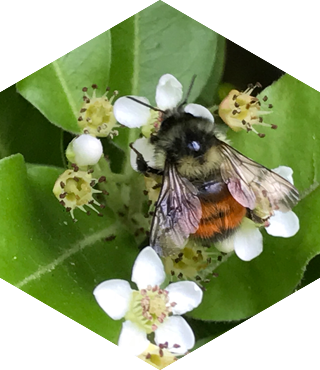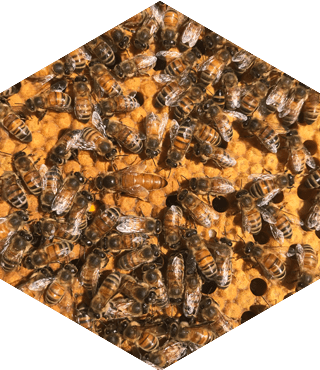DNR: It’s a banner year for yellow jackets
08/30/13
DNR: It’s a banner year for yellow jackets
by Heather Graf – King 5 News – August 30, 2013
The Washington Trails Association and the Department of Natural Resources say it’s been a banner year for yellow jackets, with more and more people getting stung every day.
DNR’s message to the public is that the agency does not release yellow jackets into the wild. They say cool spring conditions are to blame, for boosting the population of the aphid plants that yellow jackets feed on, and in turn, boosting their population.
“I got stung on the back of my leg, by my hamstring,” said Genessa Krasnow. “It swelled up from my groin all the way down to my kneecap, almost wrapping my entire leg.”
Krasnow says it happened as she walked her dog in the Columbia City neighborhood of Seattle.
“It’s very painful, more than scary, I mean, it’s awful,” she said.
On Friday, Kevin Glatzer with The Wild Bee Company found himself working in that very same neighborhood.
“I think I’ve done a couple hundred yellow jacket nests this summer,” he said. “We’re all busy.”
He removes the colony by hand, using no pesticides.
As Glatzer worked, neighbors gathered to watch the swarm of insects that surrounded him.
“I’m a doctor, and a lot of times parents will bring their kids to me to look at their stings,” said Joe Sherman, who also owns the property on which this particular yellow jacket nest sits. “I’ve seen pretty significant swelling from those stings, a lot of pain, some itching, and it lasts up to a week or more sometimes.”
The Washington Trails Association says it’s gotten numerous complaints from hikers and campers, including one from a woman who was stung 11 different times.
To avoid yellow jackets and their stings, the association says you should hike when and where it’s cooler. Cool temperatures keep stinging insects in their nests. You should also keep dogs on leash, so they don’t nose up a nest that’s low to the ground.
Strong scents and bright colors should also be avoided, as they tend to attract yellow jackets.
If you’re sensitive or allergic to stings, remember to take extra precautions. The Washington Trails Association recommends asking your doctor about adding an emergency kit to your hiking pack.
Glatzer says he and other insect removal companies are booked for weeks. He says this large population of yellow jackets could stick around thru October.
Pricing
For the first hour it’s $300, each additional hour $100, pro-rated to the quarter hour. Free removal of honey bee swarms (a mass of honey bees found on a tree, the ground, a bush… usually in the Spring) [...]
Bee Preservation
Given the delicate state of honey bees today, the opportunity to relocate colonies that have been surviving on their own is rewarding. While many honeybee colonies are failing, these “survivor colonies” may have [...]
Honey and Bees
I usually have honey for sale. If you would like some let me know when we schedule your job. My bees live around Edmonds and their honey is comprised of local flower and blackberry nectar. The honey is filtered [...]





